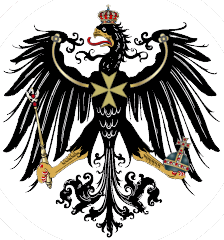This is paraphrased from the Legnica town Facebook Page (Miasto Legnica) – but requires more research.
212 years ago (June 10, 1813) , a few days after Napoleon’s second visit, his representative Marshal, Michal Ney commandeered the Liegnitz Knight Academy for the needs of his staff. Initially, the French occupied only a part of the building where the middle school operated at that time, but when one of the students wrote an insulting expression on the door of Ney’s room, the teenagers were removed from the building.
The city of Liegnitz had to cover the costs of accommodation and feeding of Napoleon’s soldiers, which were estimated at 1050 talars per week. Despite this, cases of burglary and theft have been recorded, especially in wine stores, and Polish Ulan soldiers were recorded as taking up security in the city. There was also the destruction of a Jesuit pharmacy.
During this time, the church of Peter and Paul was turned into a prison where Prussian and Russian prisoners were held. A typhoid and measles epidemic broke out in the city, which affected French soldiers, prisoners as well as city residents. The hospitals were overcrowded with the injured and the sick. At the end of June, the old Benedict Monastery (currently High School 1) was occupied by the hospital. Soon Marshal Ney demanded that the nearby St. Mary’s church (our family church) be handed over to provide more hospital space for the sick and dying. Liegnitz had a population of around 9000 people at that time, the number of the dead increased to more than 20 people per day. 300 sick people died in the first 10 days of July alone. Naked bodies were buried in mass graves near the parish cemetery.
The stay of the Napoleonic army in Liegnitz ended on August 26, 1813 when the Battle of the Katzbach took place. This was a major battle of the Napoleonic Wars where the French under Marshal MacDonald were defeated by the Coalition forces under Prussian Marshal Blücher. The battle occurred during a heavy thunderstorm in Silesia. The city was turned back to Prussian control.
JSG was 16 years of age at this time. This was a short time before he would have had to take up mandatory military service (likely in time to be a soldier for Waterloo). This would have all been considered when he made the decision to move his family to Australia, just before his son (Carl) was of the age to start the same Prussian military journey.
